

Understanding your skin type is essential for selecting the appropriate soap. There are four primary skin types: normal, dry, oily, and sensitive. Normal skin is well-balanced, with few issues.
Dry skin is characterized by tightness, flakiness, and potential irritation. Oily skin produces excess sebum, has enlarged pores, and is prone to acne. Sensitive skin is easily irritated and may react to certain ingredients or environmental factors.
Identifying your skin type is crucial before choosing a soap, as using an unsuitable product can exacerbate existing problems or create new ones. For instance, using a harsh, drying soap on dry skin can increase irritation and flakiness. Conversely, applying a heavy, moisturizing soap to oily skin may clog pores and cause breakouts.
By understanding your skin type, you can make an informed decision when selecting a soap that addresses your specific needs.
Some common soap ingredients to be cautious of include sodium lauryl sulfate (SLS), parabens, artificial fragrances, and synthetic dyes. SLS is a surfactant that can be harsh and drying on the skin, making it unsuitable for those with dry or sensitive skin. Parabens are preservatives that have been linked to hormone disruption and allergic reactions in some individuals. Artificial fragrances and synthetic dyes can also cause irritation in sensitive skin.
On the other hand, there are also beneficial ingredients to look for in a soap. Natural oils such as coconut oil, olive oil, and shea butter can provide moisturizing properties for dry skin. Aloe vera and chamomile are soothing ingredients that can help calm sensitive skin. For oily skin, look for soaps with ingredients like tea tree oil or witch hazel, which have astringent properties to help control oil production.
By understanding common soap ingredients and their effects on different skin types, you can make an informed decision when choosing the right soap for your specific needs. It’s important to be aware of potential irritants and allergens in soap ingredients in order to avoid exacerbating any existing skin issues. Identifying common soap ingredients is crucial when choosing the right soap for your skin.

When it comes to choosing the right soap for dry skin, it’s important to look for moisturizing and gentle ingredients that will help hydrate and nourish the skin. Avoid harsh surfactants like SLS, as they can strip the skin of its natural oils and further exacerbate dryness. Instead, opt for soaps that contain natural oils such as coconut oil, olive oil, or shea butter, which provide deep hydration and help restore the skin’s moisture barrier.
Additionally, look for soaps with added ingredients like glycerin or hyaluronic acid, which are known for their hydrating properties. These ingredients help attract moisture to the skin and lock it in, keeping it hydrated throughout the day. Avoid heavily scented soaps or those with artificial fragrances, as these can further irritate dry skin.
Instead, opt for unscented or lightly scented soaps with natural essential oils that won’t cause irritation. Choosing the right soap for dry skin involves selecting gentle, moisturizing ingredients that will help hydrate and nourish the skin without causing further dryness or irritation. By avoiding harsh surfactants and opting for hydrating ingredients like natural oils and glycerin, you can help restore moisture to dry skin and keep it feeling soft and supple.
When choosing the right soap for dry skin, it’s important to look for moisturizing and gentle ingredients that will help hydrate and nourish the skin without causing further dryness or irritation. Avoid harsh surfactants like SLS, as they can strip the skin of its natural oils and exacerbate dryness. Instead, opt for soaps that contain natural oils such as coconut oil, olive oil, or shea butter, which provide deep hydration and help restore the skin’s moisture barrier.
Additionally, look for soaps with added ingredients like glycerin or hyaluronic acid, which are known for their hydrating properties. These ingredients help attract moisture to the skin and lock it in, keeping it hydrated throughout the day. Avoid heavily scented soaps or those with artificial fragrances, as these can further irritate dry skin.
Instead, opt for unscented or lightly scented soaps with natural essential oils that won’t cause irritation.
| Soap Type | Cleansing Power | Ingredients | Fragrance |
|---|---|---|---|
| Glycerin Soap | Mild | Glycerin, natural oils | Light or unscented |
| Charcoal Soap | Strong | Activated charcoal, natural oils | Earthy or minty |
| Tea Tree Oil Soap | Moderate | Tea tree oil, natural ingredients | Herbal or medicinal |
For those with oily skin, choosing the right soap involves selecting ingredients that can help control excess oil production without stripping the skin of its natural moisture. Look for soaps with ingredients like tea tree oil or witch hazel, which have astringent properties that can help regulate oil production and minimize the appearance of enlarged pores. These ingredients can also help prevent breakouts by keeping excess oil at bay.
Avoid heavy, moisturizing soaps that can clog pores and exacerbate oiliness. Instead, opt for lightweight formulas that are non-comedogenic and won’t contribute to clogged pores. Look for soaps labeled as “oil-free” or “mattifying” to help control shine throughout the day.
Choosing the right soap for oily skin involves selecting ingredients that can help regulate oil production without stripping the skin of its natural moisture. By opting for astringent ingredients like tea tree oil or witch hazel and avoiding heavy, pore-clogging formulas, you can keep oily skin balanced and minimize breakouts. For those with oily skin, choosing the right soap involves selecting ingredients that can help control excess oil production without stripping the skin of its natural moisture.
Look for soaps with ingredients like tea tree oil or witch hazel, which have astringent properties that can help regulate oil production and minimize the appearance of enlarged pores. These ingredients can also help prevent breakouts by keeping excess oil at bay. Avoid heavy, moisturizing soaps that can clog pores and exacerbate oiliness.
Instead, opt for lightweight formulas that are non-comedogenic and won’t contribute to clogged pores. Look for soaps labeled as “oil-free” or “mattifying” to help control shine throughout the day.
When it comes to choosing the right soap for sensitive skin, it’s important to select gentle, soothing ingredients that won’t cause irritation or allergic reactions. Look for soaps labeled as “hypoallergenic” or “fragrance-free,” as these are less likely to contain potential irritants that can trigger sensitivity. Avoid soaps with harsh surfactants like SLS or artificial fragrances that can cause redness, itching, or inflammation in sensitive skin.
Instead, opt for gentle cleansers with calming ingredients like aloe vera, chamomile, or oatmeal, which can help soothe and protect sensitive skin from irritation. Choosing the right soap for sensitive skin involves selecting gentle, soothing ingredients that won’t cause irritation or allergic reactions. By avoiding potential irritants like harsh surfactants and artificial fragrances and opting for calming ingredients like aloe vera and chamomile, you can keep sensitive skin calm and comfortable.
When it comes to choosing the right soap for sensitive skin, it’s important to select gentle, soothing ingredients that won’t cause irritation or allergic reactions. Look for soaps labeled as “hypoallergenic” or “fragrance-free,” as these are less likely to contain potential irritants that can trigger sensitivity. Avoid soaps with harsh surfactants like SLS or artificial fragrances that can cause redness, itching, or inflammation in sensitive skin.
Instead, opt for gentle cleansers with calming ingredients like aloe vera, chamomile, or oatmeal, which can help soothe and protect sensitive skin from irritation.

For those looking to choose a more natural or organic option when it comes to soap selection, there are several key factors to consider. Natural soaps are typically made with plant-based oils such as coconut oil, olive oil, or shea butter, which provide moisturizing benefits without harsh chemicals or synthetic additives. Organic soaps are made with ingredients that have been grown without synthetic pesticides or fertilizers.
Look for soaps labeled as “certified organic” by reputable organizations such as the USDA or Ecocert to ensure that they meet strict standards for organic production. Additionally, consider looking for soaps with minimal packaging or those made with sustainable practices to reduce environmental impact. Considering natural and organic options when choosing a soap involves looking for products made with plant-based oils and organic ingredients that have been grown without synthetic pesticides or fertilizers.
By selecting certified organic soaps with minimal packaging or sustainable practices, you can make a more environmentally conscious choice while also benefiting from natural skincare benefits. For those looking to choose a more natural or organic option when it comes to soap selection, there are several key factors to consider. Natural soaps are typically made with plant-based oils such as coconut oil, olive oil, or shea butter, which provide moisturizing benefits without harsh chemicals or synthetic additives.
Organic soaps are made with ingredients that have been grown without synthetic pesticides or fertilizers. Look for soaps labeled as “certified organic” by reputable organizations such as the USDA or Ecocert to ensure that they meet strict standards for organic production. Additionally, consider looking for soaps with minimal packaging or those made with sustainable practices to reduce environmental impact.
When testing and evaluating different soaps for your specific skincare needs, there are several tips to keep in mind. First, consider doing a patch test on a small area of your skin before using a new soap all over your body to check for any potential allergic reactions or sensitivities. Pay attention to how your skin feels after using a new soap – does it feel tight and dry?
Or does it feel hydrated and comfortable? Take note of any changes in your skin’s texture or appearance after using a new soap over time. Consider seeking out samples or travel-sized versions of different soaps before committing to a full-sized product to see how your skin reacts over time.
Additionally, don’t be afraid to consult with a dermatologist if you have specific concerns about choosing the right soap for your skincare needs. When testing and evaluating different soaps for your specific skincare needs, consider doing a patch test on a small area of your skin before using a new soap all over your body to check for any potential allergic reactions or sensitivities. Pay attention to how your skin feels after using a new soap – does it feel tight and dry?
Or does it feel hydrated and comfortable? Take note of any changes in your skin’s texture or appearance after using a new soap over time. Consider seeking out samples or travel-sized versions of different soaps before committing to a full-sized product to see how your skin reacts over time.
Additionally, don’t be afraid to consult with a dermatologist if you have specific concerns about choosing the right soap for your skincare needs.
If you’re interested in learning more about the benefits of specific types of soaps for your skin, you might find the article “The Benefits of Using Natural Soap” particularly enlightening. It delves into why natural soaps can be a healthier choice for various skin types, complementing the information on how to choose the perfect soap for your skin type. You can read more about it by visiting The Benefits of Using Natural Soap. This article will provide you with a deeper understanding of the ingredients in natural soaps and how they can benefit your skin.
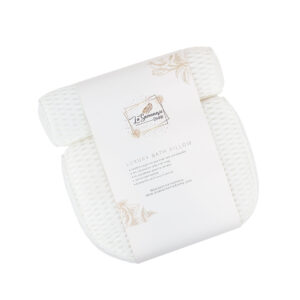

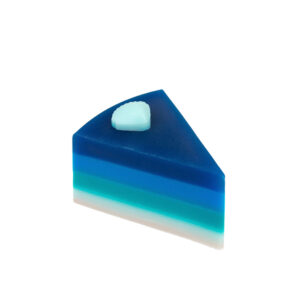
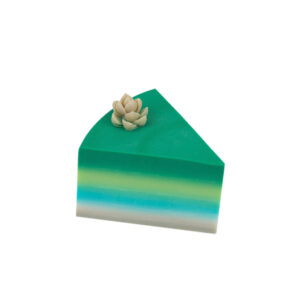
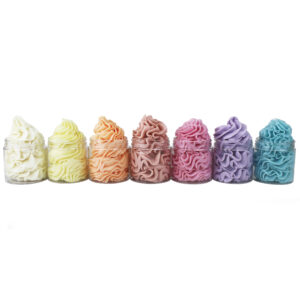
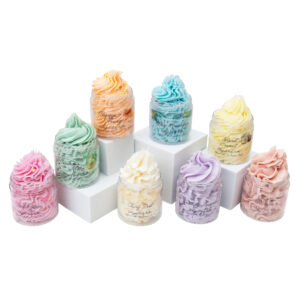
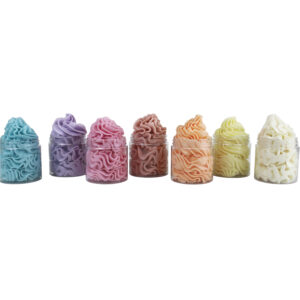
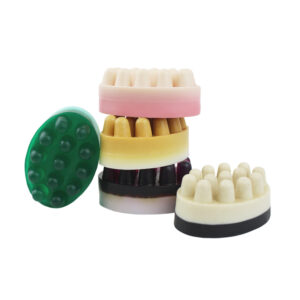
Copyright © 2024 La Savonnerie Divine | Marketing & Design Geek in NY 🗽